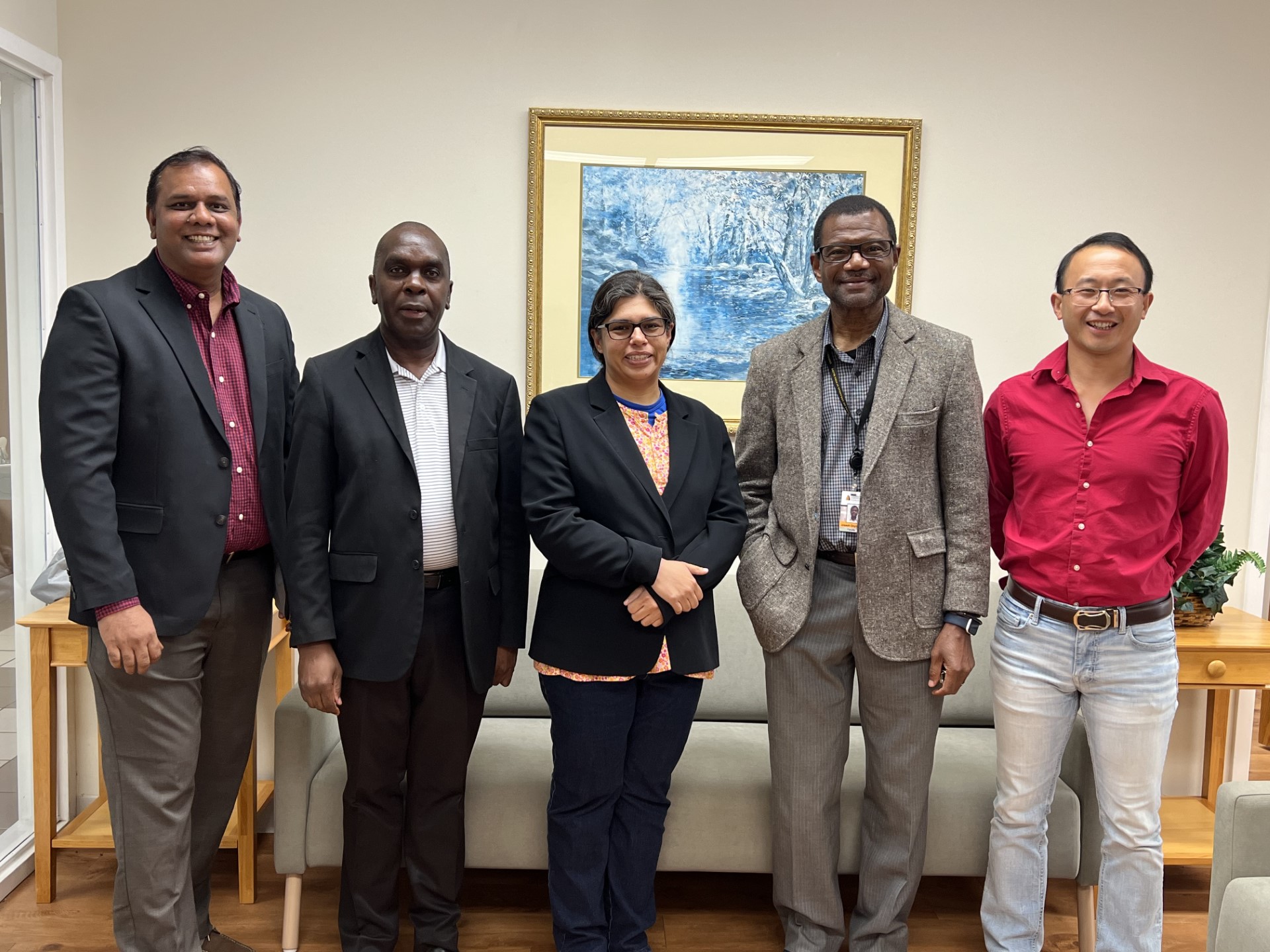Courtesy of the University of Arkansas at Pine Bluff
The National Science Foundation (NSF) recently awarded a $1 million grant to the University of Arkansas at Pine Bluff (UAPB). UAPB will use the NSF S-STEM award to support low-income, academically talented students in Science, Technology, Engineering and Mathematics (STEM). The UAPB S-STEM program team includes Dr. Grant Wangila, Dr. Joseph Onyilagha, Dr. Zeeshan Habeeb, Dr. Qinglong Jiang, and Dr. Vinay Raj.
UAPB is one of the national institutions selected for the NSF’s S-STEM program focused on addressing the need for a high-quality STEM workforce in national priority areas. The program is focused on achieving this by understanding and increasing the success of low-income, academically talented students with demonstrated financial need pursuing associate, baccalaureate, or graduate degrees in STEM. The grant awarded to UAPB will fund curricular and co-curricular activities supporting these students’ success, transfer, retention, and graduation in STEM.
UAPB’s S-STEM program will support 18 students during the duration of the grant. Each student will receive a scholarship of an average amount of $8,495 per year. Additionally, the program will fund curricular, professional, and workforce development activities. The program plans to increase the STEM workforce by leveraging existing institutional infrastructure and supporting student success and graduation.
Dr. Grant Wangila, professor of chemistry and Interim Dean of the School of Arts and Sciences (SAS), is the S-STEM grant’s Principal Investigator (PI). He will oversee the day-to-day project implementation, communication with the National Science Foundation, and follow-up with other units on the campus supporting the project. Dr. Wangila has 20 years of extensive experience at UAPB as a faculty member teaching courses and working with low-income talented students as a mentor and adviser. He has worked on several training and research project collaborations with other faculty members from UAPB and those from the institutions in Arkansas. He is managing an HBCU-Infusion grant focusing on improving students’ outcomes in chemistry courses through technology and research engagement.
Dr. Joseph Onyilagha, Co-PI of UAPB’s S-STEM program, is also the interim Director of Undergraduate Research. He will be part of the S-STEM student selection committee. Working closely with the PI, Dr. Onyilagha will collect project data while ensuring that all the S-STEM program activities at UAPB occur as scheduled.
Dr. Zeeshan Habeeb, Co-PI of UAPB’s S-STEM program and Associate Professor of Physical Chemistry, will mentor the S-STEM Scholars. She has funded research projects developing biocompatible materials for drug delivery, quantum science education, and food and nutrition security literacy. As a mentor, she will be the first point of contact for the Scholars to navigate research opportunities and resources.
Dr. Qinglong Jiang, Co-PI of UAPB’s S-STEM program, is an Associate Professor of nano-chemistry. His research focuses on optical electronics and nanomaterials for solar cells, light-emitting, and other energy-related topics. He has over 90 publications and over 40 invited talks. He will mentor the S-STEM students on research and provide them with the guidance and opportunity to present their work at conferences.
Vinay Raj, Co-PI of UAPB’s S-STEM program and Assistant Professor of Biology, Math & Computer Science, will also mentor the S-STEM Scholars. With his experience in interdisciplinary studies and specializations in leading STEM areas, he will mentor the students on educational and research opportunities in the computational, biomedical, and public health fields. In particular, he will provide insights into the interdisciplinary nature of the projects and studies relating to the bioinformatics and data science fields to prepare the scholars for further graduate studies or enter the STEM workforce.
Dr. Grant Wangila, UAPB Interim Dean of the SAS, said he is happy for UAPB STEM students. “This grant will transform the lives of many who are struggling financially. This grant also goes beyond filling the students’ financial needs gap. Financial aid will reduce their anxiety about funding and prevent them from working, in most cases, for minimum wages. It will provide unmet financial needs that extend their time equity with their middle- and upper-class classmates, allowing them more academic focus.”
UAPB’s S-STEM program team will thus implement a well-rounded mentoring approach and envisions that with a clear perspective on the different applications of their studies, the students would be well prepared for further graduate studies or enter the STEM Workforce.

